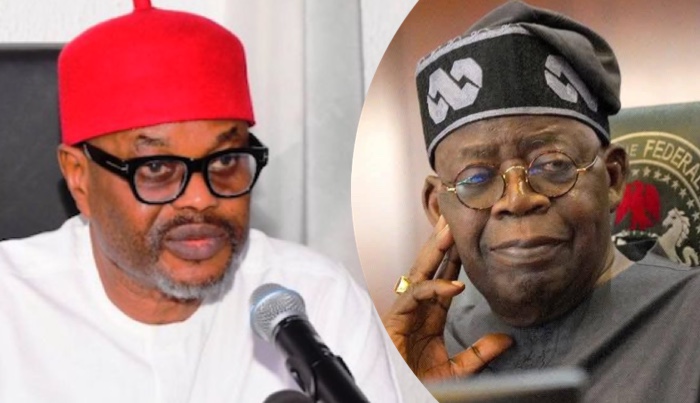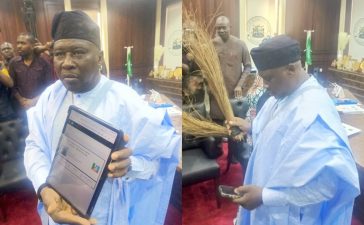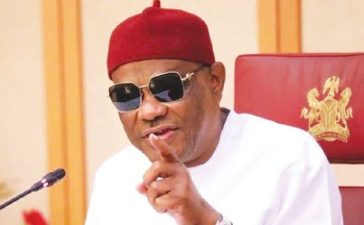President Bola Ahmed Tinubu has accepted the resignation of Uche Nnaji, the Minister of Innovation, Science and Technology, following a certificate forgery scandal that has stirred widespread controversy.
Appointed in August 2023, Nnaji tendered his resignation on Tuesday, expressing gratitude to President Tinubu for the opportunity to serve the nation.
According to a statement by the Special Adviser to the President on Information and Strategy, Bayo Onanuga, the former minister said he had been subjected to “blackmail by political opponents,” which influenced his decision to step down.
President Tinubu, in accepting his resignation, commended Nnaji for his contributions during his tenure and wished him success in his future endeavours.
However, the resignation came amid mounting evidence contradicting Nnaji’s claim of graduating from the University of Nigeria, Nsukka (UNN) in July 1985 with a Bachelor of Science degree in Microbiology/Biochemistry.
A Premium Times investigation revealed that Nnaji failed to complete his degree after being unable to pass a core course, Virology (MCB 431AB), despite multiple attempts. The report, based on letters exchanged between Nnaji and UNN officials between 1985 and 1986, indicated that he was still seeking to re-sit the course long after his purported graduation date.
In a letter dated November 8, 1985, UNN’s registrar informed Nnaji that his September 1985 supplementary exam result showed he had not passed the Virology course and advised him to re-sit the exam in June 1986 after paying an examination fee of ₦4. Although Nnaji wrote back in January 1986 expressing his intent to retake the course, he missed the exam, later citing ill health in another letter dated May 19, 1986.
The university, in an October 2, 2025 response to a Freedom of Information (FOI) request by Premium Times, confirmed that Nnaji was admitted in 1981 but had no record of completing his programme or graduating.
UNN Vice-Chancellor, Professor Simon Ortuanya, stated: “From every available record, we are unable to confirm that Mr Geoffrey Uchechukwu Nnaji graduated from the University of Nigeria, Nsukka, in July 1985. The University did not and could not have issued the purported certificate to him.”
Further discrepancies were uncovered in Nnaji’s National Youth Service Corps (NYSC) discharge certificate, which indicated that he began service on April 16, 1985 — three months before his alleged graduation — and completed it on May 15, 1986, extending beyond the usual 12-month service period.
The NYSC reportedly told Premium Times that the discharge certificate in question was not issued by the Corps.
The scandal has reignited public debate over the integrity of Nigeria’s ministerial vetting process, with growing calls for an overhaul of background checks and verification procedures for political appointees.






